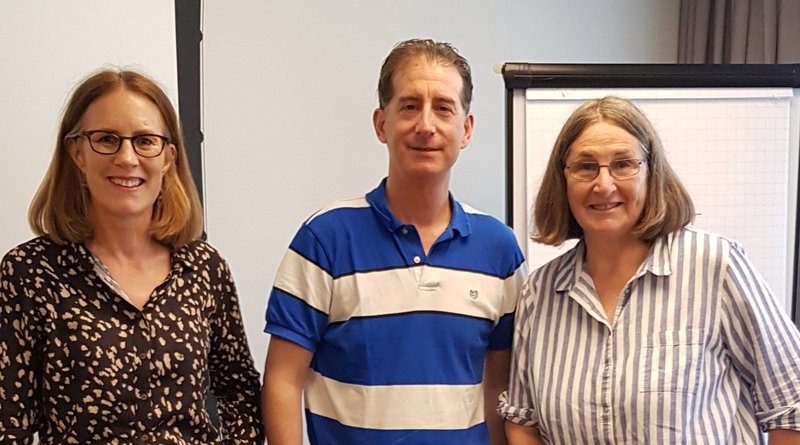
All together again: a summary of the SENSEMed workshop in Utrecht
On 11 June, after 27 long months of Zooming, SENSEMed members finally met in person in Utrecht for a one-day workshop on working with medical texts. Daphne Visser-Lees kicked off with a lively session on translating medical texts from Dutch into English. She explained which texts might need expert medical knowledge to translate (such as case reports and articles) and which ones probably don’t (leaflets for patients, medical insurance documents). She then led us through two translation exercises. The first highlighted common terminology issues we might face when translating medical texts from Dutch into English – for example, Hernia typically refers to a herniated or slipped disc in Dutch whereas it generally means an abdominal hernia in English. The second explained how to decipher and translate case notes from a Dutch GP (not always – or never – easy!). Daphne’s extensive medical experience serves her well when tackling these difficult jobs and we were all grateful for the opportunity to learn from her knowledge and expertise.
Sally Hill and Curtis Barrett were up next with their editing slam. Sally and Curtis had both edited an abstract from a medical research article and presented and explained their changes sentence by sentence. This was an engaging session with plenty of questions and input from the audience. Sally and Curtis had both improved the clarity and readability of the text with their changes – but they did not always agree on what changes were best. This session highlighted just how subjective editing can be and that there is never one right solution to a difficult sentence. It also highlighted how we need to be aware of changes in scientific style and keep in mind that our own preferences (such as whether to use the Oxford comma or italicize Latin words) may not align with the style guide our client has to follow. Sally and Curtis finished up by giving a useful summary of what they do before starting an editing project and before delivering an edited file, both of which involve careful and specific communication with the client. A very enlightening session overall.
After a tea break, Sally was up again to talk to us about medical writing. Sally moved from freelance to in-house work last year after accepting a job as a senior scientific writer for the biotech company Merus. The goal of her talk was clear: to make us aware that medical writing exists. Job done. She explained what kind of texts medical writers are typically asked to produce (broadly divided into regulatory writing and medical communications) and what skills a medical writer should have (writing skills, scientific expertise, document expertise, and project management skills). To highlight how important (and complicated!) project management can be for a medical writer, Sally led us through a short exercise where we had to list the things we would need to consider before developing a timeline for a proposed writing project. The session was informative and inspiring, and Sally may well have succeeded in recruiting some future medical editors into her fold.
The participants were all grateful to Curtis, Daphne and Sally for taking the time and trouble to organize such a great workshop. We were all delighted to see each other in person again and are looking forward to many more such events in the future!
